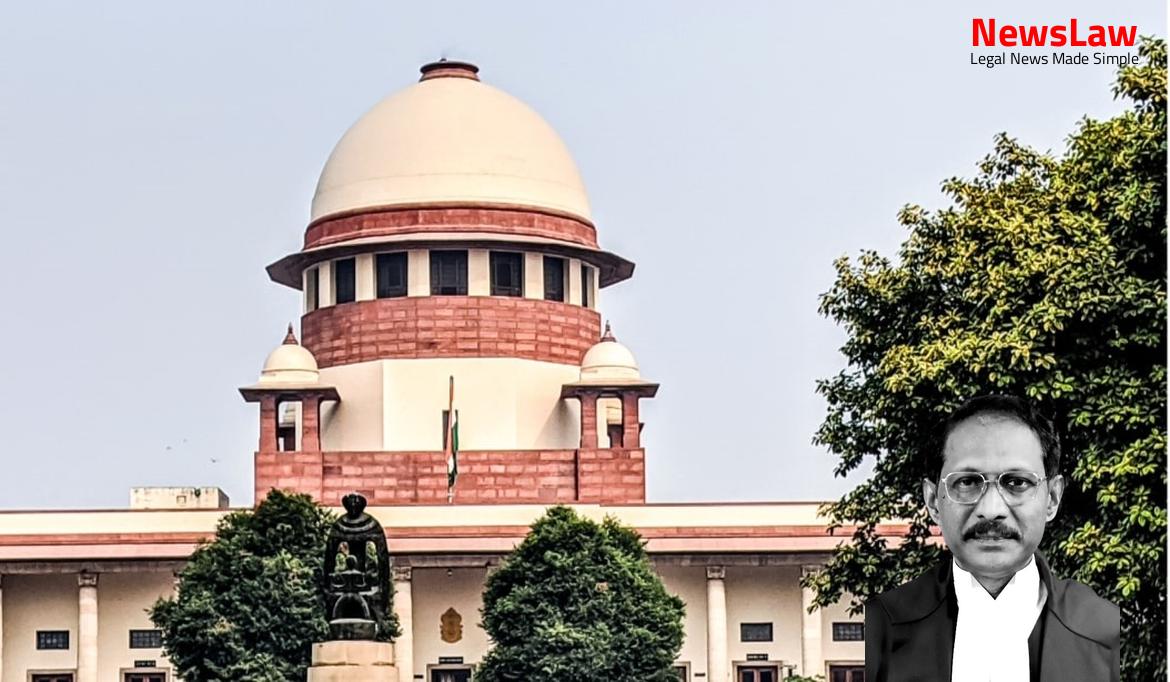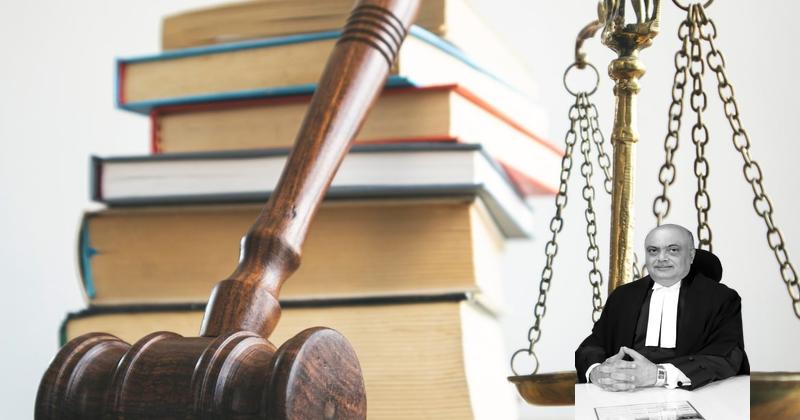Delve into the legal intricacies of a significant case involving the interpretation of the POCSO Act. The court’s detailed analysis sheds light on the reliability of victim testimony and the essential considerations in cases of sexual offenses. Explore how the court’s ruling sets a precedent for handling such sensitive matters with diligence and compassion.
Facts
- The appellant was tried for offences under the POCSO Act.
- The High Court modified the trial court’s order regarding compensation payment by the State to the victim girl.
- The appellant’s appeal was partly allowed by the High Court.
- The High Court convicted the appellant under Section 7 of the POCSO Act and sentenced him to three years of rigorous imprisonment.
- The appellant challenged the High Court’s judgment and order.
- The appellant’s counsel argued against the compensation of one lakh rupees to the victim girl.
- The trial court also ordered the appellant to pay one lakh rupees as compensation.
- The appellant’s appeal before the High Court was taken up on different dates for hearing.
- The High Court appointed a Legal Aid Counsel for the appellant due to absence of representation.
- The appellant filed the present appeal against the High Court’s judgment.
Also Read: Transfer of Writ Petitions for Chartered Accountants’ Tax Audit Guidelines
Arguments
- The Legal Aid Counsel had insufficient time to receive and inspect the original documents.
- The failure to afford hearing to the accused violates the minimum standards of due process of law.
- Conviction can be based on the sole testimony of the victim.
- Legal services provided to the accused should be meaningful and not a mere formality.
- Benefit of doubt should have been given to the accused due to lapses on the part of the prosecution.
- Previous enmity between the parties was admitted by a witness, which should have impacted the verdict.
- Opposing counsel argues that the disposal of the appeal within four days does not indicate lack of fair opportunity for the accused.
- Reliance is placed on the decision of Vijay alias Chinee v. State of Madhya Pradesh, (2010) 8 SCC 191.
- The argument that the mother of the victim turned hostile should not discount the reliable testimony of the victim, as per opposing counsel.
- The High Court provided legal aid counsel to the appellant and a decision was made within four days, leading to the conviction.
- Opposing counsel states that the victim’s testimony was reliable and the defense had sufficient opportunity to cross-examine.
- The use of Order 41 Rule 31, CPC and the Vinod Kumar v. Gangadhar case has been cited by the defense counsel.
- The conviction based on the sole testimony of the victim is contested by the defense due to the mother of the victim turning hostile.
- PW2 cannot be considered an eye-witness to the incident
- The victim, PW3, fully supported the prosecution’s case
- The trial court’s decision to convict the accused under the POCSO Act was not erroneous
- The trial court showed leniency by awarding the minimum sentence under the POCSO Act
Also Read: Analyzing Interference with Acquittal in Legal Conviction Case
Analysis
- Reliance placed on the consistency of the victim’s statement from start to finish, along with other supporting material.
- Importance of the reliability and trustworthiness of the victim in cases where they are the sole witness.
- Inconsistency of the victim’s mother turning hostile but the victim’s testimony being deemed reliable.
- Thorough cross-examination of the victim to establish trustworthiness.
- Criteria for a witness to be considered a ‘sterling witness’ without needing corroboration.
- Emphasis on core version of witness’s testimony aligning with all other supporting evidence.
- Conclusion that the victim’s testimony is trustworthy and of high quality.
- Necessity for evidence assurance to vary based on each case’s circumstances.
- No adequate opportunity argument by the accused countered by partial relief by the High Court and sentence already served.
- Conviction of the accused under the POCSO Act based on victim’s deposition upheld by the trial Court.
- Support for the victim’s mature and reliable nature for deposition.
- Trial Court’s imposition of minimum sentence and display of leniency affirmed.
- In-depth description by the victim on the incident supporting her credibility.
- Importance of a coherent narrative without missing links in determining guilt.
- Reference to the precedent set in the case of Anokhilal.
- In cases involving sexual harassment, molestation, etc., the court is entitled to base a conviction on the evidence of a prosecutrix of full understanding unless shown to be infirm and untrustworthy.
- Minor contradictions in the statement of a prosecutrix should not be a ground for dismissing a reliable prosecution case.
- The court should accept the version of the prosecutrix without hesitation unless shown otherwise.
- Corroboration of the prosecutrix’s testimony is not a legal requirement but a prudential guidance.
- The court must handle cases of sexual harassment with utmost sensitivity and give weight to the statement of the prosecutrix, which is deemed more reliable than an injured witness.
- The court should not seek corroboration of the prosecutrix’s statement as a rule, as it may add insult to injury.
- The delay in filing an FIR for a sexual offense may not discredit the prosecutrix’s testimony if found natural.
- In cases of sexual assault, the court should evaluate the evidence with the understanding that no self-respecting woman would make false accusations of such offenses.
- The absence of injury on the prosecutrix does not absolve the accused, and her testimony can be sufficient for conviction without corroboration under compelling circumstances.
- The court must be sensitive and consider the broader probabilities of the case rather than minor contradictions in the prosecutrix’s statement.
- The testimony of the prosecutrix must be evaluated in the context of the entire case, and the court must be conscious of its responsibility in dealing with sexual molestation cases.
- The High Court rightly convicted the accused for the offence under Section 7 of the POCSO Act.
- The accused was sentenced to undergo three years R.I., the minimum sentence under Section 8 of the POCSO Act.
- The High Court modified the amount of compensation awarded by the trial Court and directed the State to pay the compensation to the victim.
- The State can recover the compensation from the accused under the provisions of land revenue if the accused has sufficient means.
- It is stated that the accused is very poor and has no property.
Also Read: Judicial Review on Sentence and Compensation in Criminal Case
Decision
- The reliance on the decision of the Court in Vinod Kumar (supra) and Order 41 Rule 31 CPC is not applicable in this case.
- The appeal has been heard on merits and the appellant has already served a significant portion of the sentence (two years and three months).
- The High Court has modified the judgment of the trial Court, addressing the concerns raised.
Case Title: GANESAN Vs. STATE REP. BY ITS INSPECTOR OF POLICE (2020 INSC 596)
Case Number: Crl.A. No.-000680-000680 / 2020



